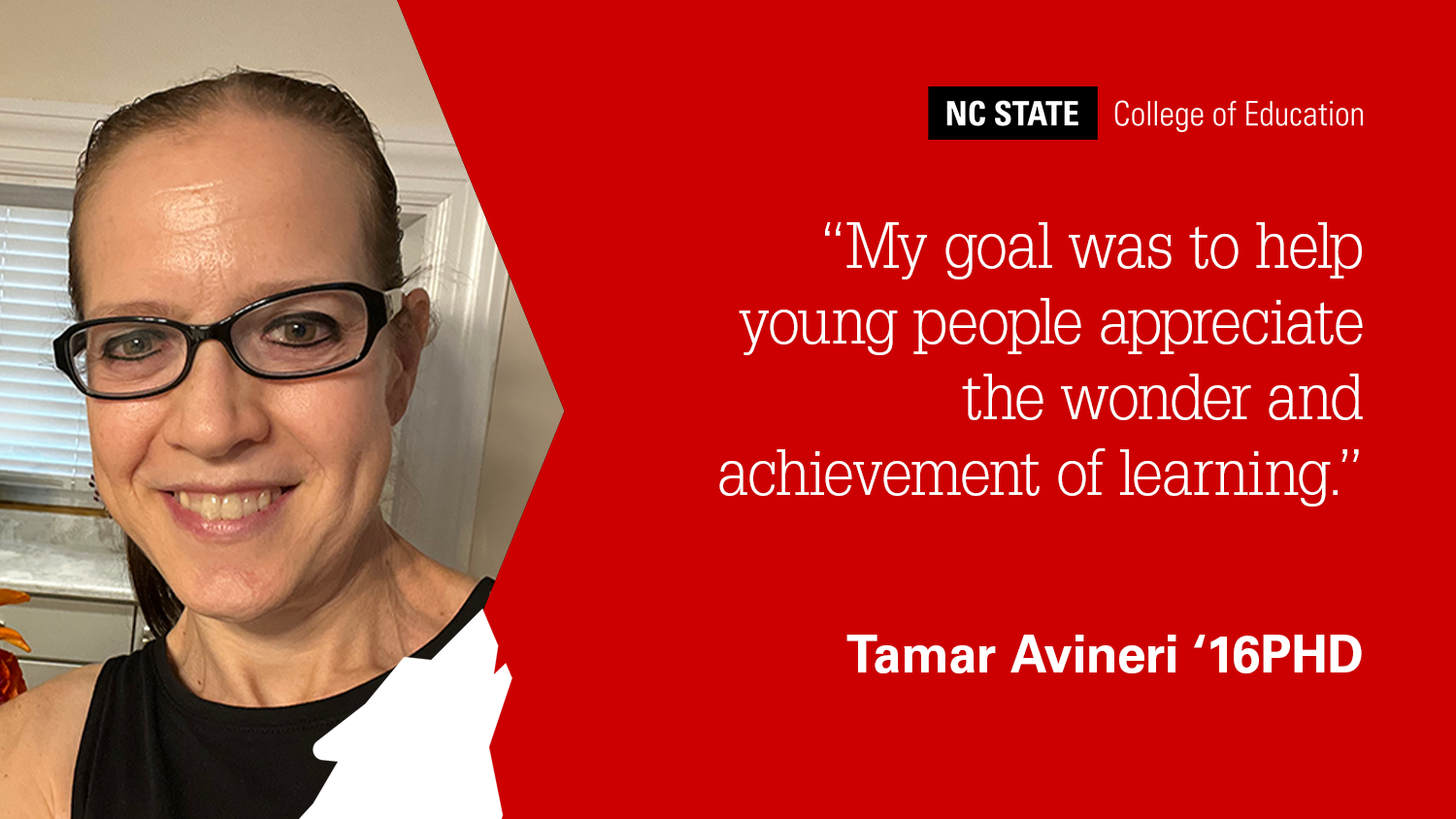Doctoral Student Katie Loovis ‘22EDD Credits Experience in Community College Leadership Program with Helping Her Author New Report Examining Workforce Development in Skilled Construction Trades

Katie Loovis ‘22EDD has been a doctoral student in the NC State College of Education for just over one year, but her time in the Community College Leadership program has helped her to conduct research that is already having an impact on workforce development initiatives in North Carolina.
Loovis, who works as the vice president of external affairs for The Chamber for a Greater Chapel Hill-Carrboro, served as the author and lead researcher of the “Skilled Construction Trades Study” which examines the talent pipeline and construction industry needs in the Orange County, North Carolina, region.
The report, Loovis said, stemmed from an amendment passed last summer by Orange County Commissioners to address challenges in the construction industry. The amendment allocated money for a study that would allow the county to better understand the talent pipeline in the region and determine the feasibility of a training center to prepare more people for work in the skilled construction trades.
Loovis said the call for this study aligned perfectly with her work in the College of Education, which gave her the confidence to submit a proposal on behalf of The Chamber and combine her research and educational experience with her role at the organization.
“This was outside the norm for our chamber, but the timing was just so perfect because as a doctoral student at NC State studying these issues, I was able to bring a set of skills that our chamber traditionally has not had,” she said. “It was such a pleasure both personally and professionally to help lead this study.”
Throughout the year-long study, Loovis led a team of 30 leaders from various sectors in Orange County and conducted interviews with 50 stakeholder groups to better understand the challenges and opportunities in the skilled construction trades.
The findings shared in the published study indicate that there is a construction worker shortage in Orange County even as employer demand continues to grow and that while construction job opportunities are robust, training for these jobs is limited within the county.
Additionally, the study indicates that several occupations within the construction trades have strong income opportunities and projected growth. This finding, Loovis said, has gained significant importance in light of the ongoing COVID-19 pandemic, which has left millions of people unemployed and in search of new career opportunities.
“The timing of the release of this study almost gives me goosebumps because if we can help more people to recareer in this industry, which needs help even in this time of crisis, there’s a real opportunity here,” Loovis said. “These workers are displaced and what’s exciting about the construction trades is that you can upskill fairly quickly and you can get into the field and continue to learn and earn.”
To help address workforce development needs, the report recommends three short-term next steps that include identifying funding for classes in Orange County through organizations like Durham Technical Community College, supporting the launch of a new HVAC training program within Chapel Hill-Carrboro City Schools as well as supporting the continued success of the “Students Transforming Expectations & Exploring Real Opportunities (STEER)” program in Hillsborough, and supporting the expansion of WayMakers to include Orange County and Chapel Hill-Carrboro City Schools.
Long-term, the study recommends the creation of a comprehensive, demand-driven workforce development plan for Orange County that is aligned to dynamic business needs and designed to build competitive advantage. Since the study was released in early August, Durham Technical Community College President JB Buxton issued a statement affirming the college’s commitment to engaging with the recommendations outlined in the report and expanding their efforts to build a talent pipeline for the construction workforce.
“My studies at NC State has very much influenced how I approached this project,” Loovis said. “The fact that we were able to put forward recommendations and next steps, I think is a credit to my time at NC State. Engaging in research that not only defines where we are, but can influence where we’re going is something that the Belk Center for Community College Leadership and Research really carries in spirit.”
Because of her work with The Chamber, which includes members from the construction industry, Loovis said she approached the construction trades study from an action research perspective — a concept she learned about during one of her College of Education classes taught by Professor Jayne Fleener, Ph.D. She said utilizing this approach that she learned in the course of her studies enabled her to leverage her position in order to tease out important research, findings and recommendations.
In addition, Loovis said Associate Professor James Bartlett, Ph.D., also played a crucial role in the research process, introducing her to sophisticated data platforms that helped her to understand the current industry demands for employees.
Loovis said her work on the project has led to her appointment to the Regional Partnership Workforce Development Board, one of 23 boards across North Carolina that manages workforce development. She said it was because of her studies at the College of Education that she felt confident in her ability to take on this role helping to serve a five-county region.
“I know there are many Ed.D. programs in the country, but I am persuaded that there is none better than NC State’s,” Loovis said. “The faculty is superb, the Belk Center brings the research to life with practice and Professor [and Belk Center Executive Director] Audrey Jaeger is extraordinary. The opportunity to study under her was a strong draw for me to enroll at NC State.”
- Categories:


